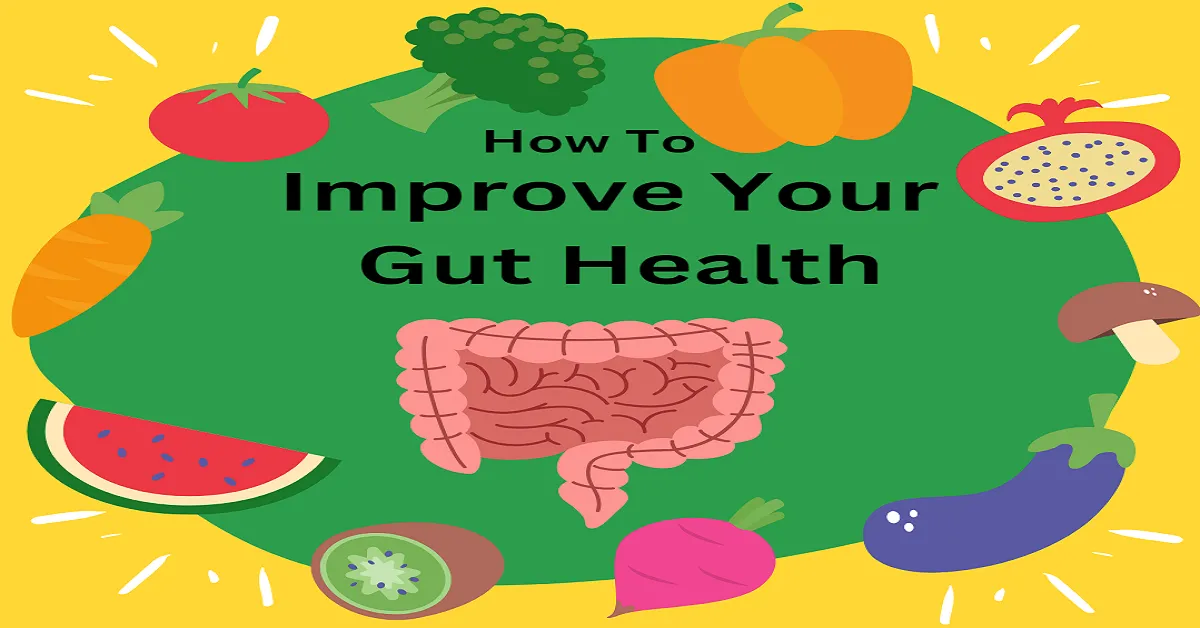Looking to improve gut health? Learn how a balanced diet can be your key to a healthy gut. Explore dietary tips, nourishing foods, and effective strategies to optimize digestion, promote gut flora, and enhance overall well-being. take first step towards a healthier gut today!
Table of Contents
Understanding the Importance of Gut Health
The Link Between Diet and Gut Health
Incorporating Fiber for a Healthy Gut
Nurturing Your Gut with Probiotics
Including Fermented Foods in Your Diet
Choosing Whole Foods for Gut Health
Avoiding Processed and Sugary Foods
The Role of Hydration in Gut Health
Managing Stress for a Healthy Gut
Getting Sufficient Sleep for Gut Health
Exercise and Gut Health
Listening to Your Body’s Signals
Maintaining a Consistent Eating Schedule
Combining Different Food Groups for Gut Health
Seeking Professional Advice for Gut Health
Conclusion
Frequently Asked Questions
In our fast-paced world today, taking care of our health has become increasingly important for many people. One aspect of health that often goes overlooked is gut health. Your gut plays a vital role in digestion, nutrient absorption, and overall well-being. Fortunately, improving your gut health can be achieved through simple dietary modifications. In this article, we will explore how you can enhance your gut health by following a balanced diet.
Understanding the Importance of Gut Health
The gut, also known as the gastrointestinal tract, consists of a complex system of organs responsible for digestion and nutrient absorption. A healthy gut is crucial for overall well-being as it influences various bodily functions, including the immune system, mental health, and even skin condition.
The Link Between Diet and Gut Health
Your diet plays a significant role in determining the health of your gut. Consuming a balanced diet that is rich in essential nutrients can promote the growth of beneficial gut bacteria, maintain a healthy gut lining, and prevent inflammation.
Incorporating Fiber for a Healthy Gut
Fiber is a key component of a gut-healthy diet. It acts as a prebiotic, providing nourishment to the beneficial bacteria in your gut. By including ample amounts of fruits, vegetables, whole grains, and legumes in your diet, you can ensure an adequate intake of fiber.
Nurturing Your Gut with Probiotics
Probiotics are living microorganisms, including bacteria and yeasts, that provide a wide range of health benefits when ingested. They help restore the natural balance of bacteria in your gut and promote a healthy digestive system. You can discover probiotics in delicious fermented foods like yogurt, kefir, sauerkraut, and kimchi.
Including Fermented Foods in Your Diet
Fermented foods are not only delicious but also great for your gut health. They undergo a fermentation process that increases the number of beneficial bacteria. Adding foods like kombucha, miso, tempeh, and pickles to your diet can diversify your gut microbiota and improve digestion.
Choosing Whole Foods for Gut Health
Opting for whole foods is essential for promoting gut health. Processed foods often contain additives and preservatives that can disrupt the balance of bacteria in your gut. Instead, focus on consuming fresh fruits, vegetables, lean proteins, and whole grains for optimal gut health.
Avoiding Processed and Sugary Foods
Highly processed foods and those rich in added sugars can have detrimental effects on your gut health. These foods often lack essential nutrients and fiber while promoting the growth of harmful bacteria. Minimizing the intake of sugary snacks, sodas, and processed foods can benefit your gut health.
The Role of Hydration in Gut Health
Ensuring proper hydration is essential for promoting a healthy gut. Water helps in digestion, absorption, and transportation of nutrients throughout your body. Aim to drink an adequate amount of water each day and limit the consumption of dehydrating beverages like alcohol and caffeine.
Managing Stress for a Healthy Gut
Chronic stress can disrupt the balance of bacteria in your gut and lead to various digestive issues. Incorporating stress management techniques such as meditation, exercise, and deep breathing can help improve your gut health. Finding time for relaxation and self-care is vital for maintaining a healthy gut.
Getting Sufficient Sleep for Gut Health
Adequate sleep is essential for overall health, including gut health. Poor sleep patterns can negatively affect your gut microbiota and increase the risk of gastrointestinal issues. Strive to get seven to eight hours of quality sleep each night to support a healthy gut.
Exercise and Gut Health
Regular exercise offers numerous benefits, including improved gut health. Physical activity promotes healthy digestion, reduces inflammation, and enhances the diversity of gut bacteria. Engage in activities you enjoy, such as walking, swimming, or yoga, to support a healthy gut.
Listening to Your Body’s Signals
Every person has a unique gut microbiota, meaning that what benefits one individual may not have the same effect on another. It’s important to observe how your body reacts to various foods and make personalized adjustments accordingly. Your body often provides signals when something isn’t right, such as bloating, gas, or irregular bowel movements.
Maintaining a Consistent Eating Schedule
Establishing a consistent eating schedule can benefit your gut health. Aim to have regular meals and avoid prolonged periods of fasting. Irregular eating patterns can disrupt the balance of bacteria in your gut and lead to digestive issues. Try to space your meals evenly throughout the day.
Combining Different Food Groups for Gut Health
To optimize gut health, it’s important to consume a variety of foods from different food groups. Each food group provides unique nutrients that contribute to a healthy gut. Strive to create balanced meals that include a combination of carbohydrates, proteins, healthy fats, and fiber-rich foods.
Seeking Professional Advice for Gut Health
If you’re experiencing persistent gut-related issues or have specific dietary concerns, it’s advisable to seek professional advice. A registered dietitian or healthcare provider can offer personalized guidance based on your unique needs and help you develop a customized plan for improving your gut health.
Conclusion
Improving your gut health through a balanced diet is a proactive step towards overall well-being. By incorporating fiber-rich foods, probiotics, fermented foods, and whole foods into your daily meals, you can support a healthy gut and promote optimal digestion. Additionally, managing stress, getting sufficient sleep, and maintaining an active lifestyle contribute to a thriving gut microbiota. Remember to listen to your body’s signals and consult professionals when needed. Take charge of your gut health today for a happier and healthier life.





Pingback: Natural Glow: Tips For Healthy Skin - Bitsify
Pingback: Role Of Nutrition In Muscle Recovery - Bitsify